Blog
Avoid Sewer Line Stress
Friday, April 26th, 2024
The sewer line refers to the pipes that lead from your home or place of business to the main drainage system of your community’s plumbing. It allows water and waste to exit your building smoothly and without disruption to your day.
Sewer line pipes can last for many years without requiring repairs. If these pipes do suffer damage, you can be left with quite a mess. But fixing and maintaining this part of your plumbing system does not have to be a disaster.
When you call a trusted plumbing company to handle your sewer line needs, repairs and other work can be handled with ease. You can also reduce your risk of this type of plumbing emergency when you know more about how to take care of your sewer line properly. Read on to learn details about sewer line maintenance.
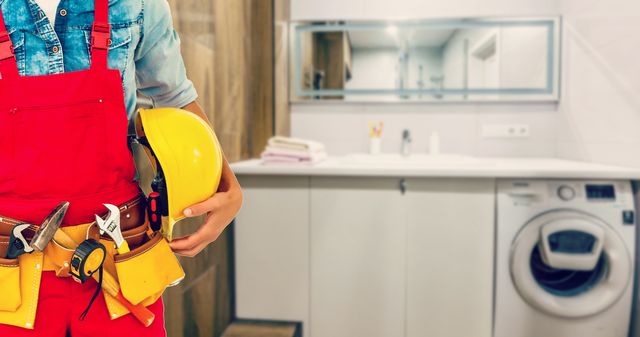
What Makes Sewer Lines a Hassle?
Many property owners do not think about their sewer line until a problem arises. But an issue with your sewage can come with noticeable signs that can disrupt your regular schedule.
One of the primary complaints of a broken sewer line is a foul odor. If waste cannot leave your property in a timely fashion, it might build up in your pipes and drains, and it can emit a bad smell that can permeate the building and prove incredibly distracting.
Drains in your home or commercial establishment might suffer a clog or backup. When this happens, they will dispose of wastewater slowly or not at all. You could face a risk of mold growth on the property as well if excess water lingers.
Damage to a sewer line outside of your building can leave your lawn soggy and messy. Then in some cases, a plumber might need to dig up the area to access and fix the pipes. This can be highly disruptive as well as expensive, so preventive care for your sewer line is preferable.
How to Prevent Sewer Line Problems
Sometimes damage to pipes happens outside of your control due to aging pipes or interference from external forces like tree roots. However, if you take good care of your plumbing system, you can decrease the likelihood of the development of sewer line damage.
The first bit of advice your plumber can offer regarding caring for your sewage system is to pay attention to the items you dispose of down your drains. A garbage disposal in a kitchen sink can break up some food materials you may want to get rid of. But ideally, you should toss as much food waste in your compost or trash as possible to prevent clogs.
This awareness of what you eliminate through your sewage system should apply to your toilet as well. Toilets are designed to get rid of human waste and toilet paper only. Other materials have a high risk of clogging your system, which can lead to serious damage to your sewer line.
It is also a good idea to flush and clean your plumbing system on a regular basis. Your plumber can offer more maintenance tips for your sewer line when you give them a call.
Do I Need to Replace My Sump Pump?
Wednesday, March 27th, 2024
A sump pump refers to a device that many buildings, especially those with basements that could be prone to flooding, have installed. It features a pit or tank in the ground that can collect water that might otherwise accumulate indoors and then pump it through a pipe to drain outside.
The sump pump can protect your building and stored items from serious water damage from flooding. This can prove especially useful with rainy spring weather on the horizon. But if a sump pump fails, then your home and belongings could be in danger.
You might see certain indicators of a malfunctioning sump pump that requires replacement prior to its failure. A plumber can inspect your sump pump to ensure it works properly. But you can also read on to learn five signs that can mean it is time to replace your sump pump.
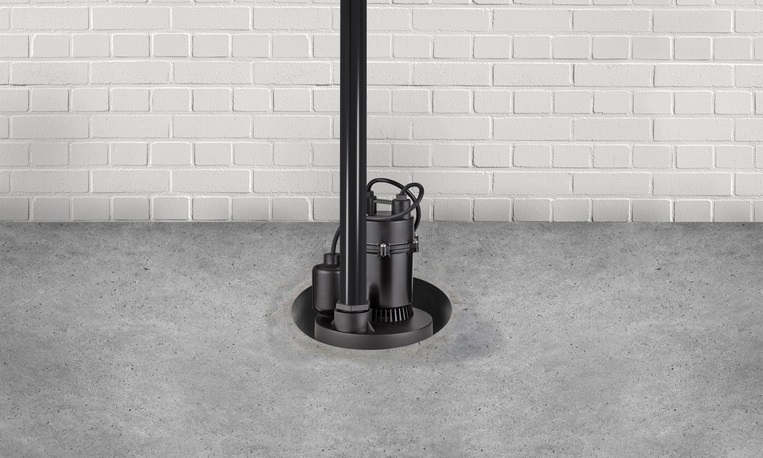
More Than a Decade Old
The average sump pump will last for about ten years before requiring replacement. Sometimes it can last for fifteen years or longer. Other times you will need a new sump pump after seven years.
Routine evaluation from a plumber can give you a more solid idea of the state of your sump pump. It may be a good idea to replace your sump pump prior to its deterioration to ensure maximum protection for your property.
Makes Strange Noises
When a sump pump is in action, you might notice a quiet, low hum as the machine pushes water from the basin out of the attached drain. If the sump pump makes a significant amount of noise, such as rattling or grinding, then the motor might be broken.
A loud or strange sound could also point to a clog somewhere in the system. This may require a plumbing professional to eliminate.
Runs Nonstop
The sump pump only takes about a minute to drain water from its basin. So if you can hear the pump working for several minutes at a time, you might have a problem with the device.
The machine might not have enough power to get rid of the excess water it needs to. As a result, you could face a higher utility bill as well as a risk of flooding. So do not ignore this issue.
Not Working at All
You can anticipate your sump pump kicking into gear during a rainstorm or if outside snow begins melting. Pooling water outside can be an indicator that this water will try to enter your building too.
The sump pump should get rid of this water. But if you do not notice it turning on when it should, something is likely wrong with the machine. Give your plumber a call to identify and fix the problem.
Visible Water Damage
If you see slight damp patches or water stains near your sump pump, then water is not leaving your building in the way that it should. Moisture damage can lead to severe structural issues, mold, and rot within your property. So do not dismiss these signs of existing water damage because they could get worse.
Help for Frequent Toilet Clogs
Friday, February 23rd, 2024
A clog in a toilet can prove to be a huge hassle. We rely on our toilets to drain and eliminate waste effectively, and if the toilet clogs, it cannot accomplish this crucial task. A clog forming every once in a while can happen due to an acute accident. But if your toilet clogs on a regular basis, you should not dismiss the issue.
A plumber can evaluate the condition of your toilet and find the cause of these clogs when you schedule a plumbing inspection. But you might be able to resolve the issue on your own in some instances. Find three ways that you can prevent clogs from developing frequently in your toilet when you read on.
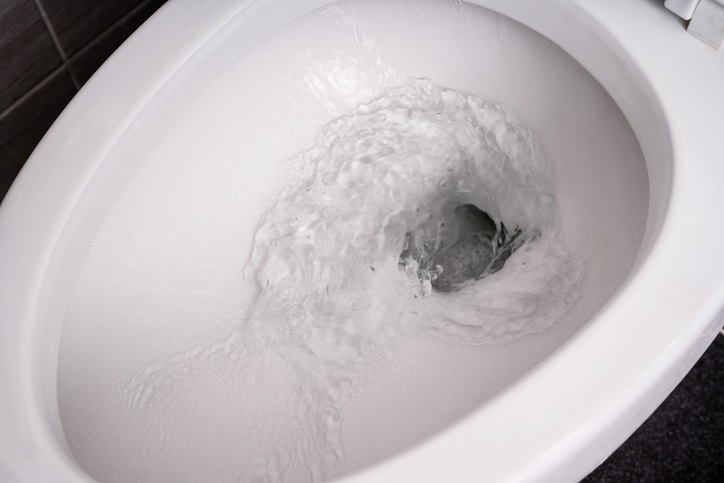
Pay Attention to What You Flush
The most common reason that a clog can form in your toilet is due to the types of things you flush. For instance, many people may think that they can flush facial tissues, cotton swabs, and other items. But these products are not compatible with flushing down the toilet. Avoid putting these non-flushable materials down your toilet if you want to prevent a clog.
Sometimes, if you use too much toilet paper, you can also create a clog in your toilet. Try to use only the toilet paper that you require so that you do not clog the toilet.
Purchase lower-ply tissue rather than thicker toilet paper as well, even though you might enjoy the comfort. This product might not dissolve as easily and can create a clog in your plumbing. Older models of toilets that have a lower flow can prove especially susceptible to clogs in this way.
Use a Plunger
You likely already know that your plunger can fix an acute clog in your toilet to allow the water to run through the plumbing as it should. But if you notice that your toilet clogs frequently, you might have a blockage deeper in the sewer line. These clogs might develop due to using multi-ply toilet paper or flushing other items down the toilet.
Try using your plunger to unclog this deeper blockage in the S-trap of your toilet. Not all clogs this deep in your plumbing will go away with this effort. In this case, you may need help from a professional.
Call a Plumber
While you can fix smaller, simpler clogs in your toilet by yourself, you will need help from a plumber to address chronic and complicated toilet problems. Clogs deeper within the sewer line will require specific equipment to access and clear away.
Sometimes these clogs can form due to leaks or damage even further from your house. A plumber can inspect the issue and provide repairs accordingly so that you can avoid the hassle of frequent clogs in your toilet.
They may also offer assistance if the problem with your toilet clogging stems from another issue, such as a blockage in your toilet vent. Give your plumber a call today to get an estimate for your plumbing needs.
Got Plumbing Rust Stains?
Tuesday, January 30th, 2024
Do you see reddish-brown stains around your pipes, sinks, or other plumbing fixtures? Does water seem to have this rusty color in your toilet or when it comes from a faucet? This discoloration can point to an accumulation of rust within your plumbing system.
You might feel unhappy about the stains this residue can create in your home. But it may lead to plumbing issues if you ignore this concern. Read on to learn details related to rust within your plumbing system, including its causes, dangers, and treatment options.
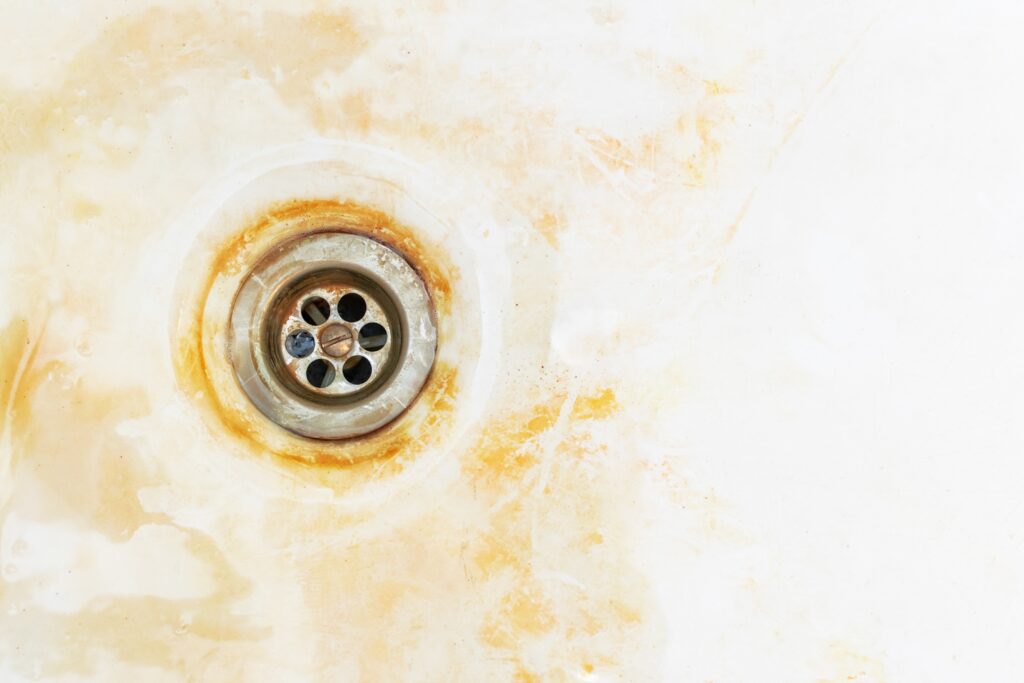
Causes of Rust in Plumbing Systems
Rust is a compound created when iron and oxygen mix with moisture. Although this natural reaction may seem common, your plumbing system should not routinely have rust. Rust may give your water a metallic flavor and can cause unappealing stains to your home.
Improper ventilation near pipes might cause rust to develop around the exterior of the pipes. The presence of certain bacteria or minerals within the water supply might also encourage rust formation within your plumbing system. Over time, your pipes might corrode or deteriorate, which can lead to rust accrual within your plumbing.
Sometimes rust build-up will go away on its own, especially if it occurs as a result of one specific mineral deposit that runs out. But corroded pipes will worsen. Pay attention to your water and plumbing to ensure you do not have persistent rust.
Risks of Rusty Pipes and Plumbing
As mentioned, rust within your plumbing can leave harsh-looking stains on your toilet, pipes, drains, and other fixtures. These can make your house look and feel dirty, but it also might introduce hazards to your home.
Some people might suffer skin irritation due to the presence of rust in the water. The skin might itch or become dry, leaving you susceptible to unpleasant rashes. It may also make your hair feel gritty or dull.
While some ingestion of iron in your diet is normal, you might feel sick if you continue to drink or use water containing rust. Therefore, you should not ignore metallic tastes or discoloration in your water supply.
Steps to Clean Rusted Plumbing
When you first notice rust within your plumbing, try running a faucet to try to flush the rust out of the system. If the rust-colored water does not go away, you may need to take further action. You could benefit from installing a water filter over your faucet that can eliminate rust within your water and make it safer to handle.
If the cause of rust in the water is pipe corrosion, you will need to contact a plumber. The plumber can replace damaged pipes so that you can see improved water quality. The sooner they can fix the problem, the less likely you will suffer a severe plumbing emergency such as a leaking or burst pipe.
You can create a cleaning solution made from lemon juice and salt or baking soda and vinegar to get rid of rust stains near your plumbing fixtures. Ask your plumber for advice when cleaning so that you can prevent scratching or damaging your plumbing as you get rid of rust.
Winter Cleaning for Your Plumbing
Wednesday, December 20th, 2023
Are you looking forward to the brisk weather that comes in the wintertime? Snow and chilly weather can make for a cozy atmosphere. But if harsh temperatures hurt your plumbing, you can find your season ruined.
Proper maintenance can protect your drains, pipes, and other plumbing features throughout the winter. And this will mean making an effort to keep your plumbing system clean. Read on to find advice from your local plumber that will ensure your plumbing stays clean and functions at its best this winter.
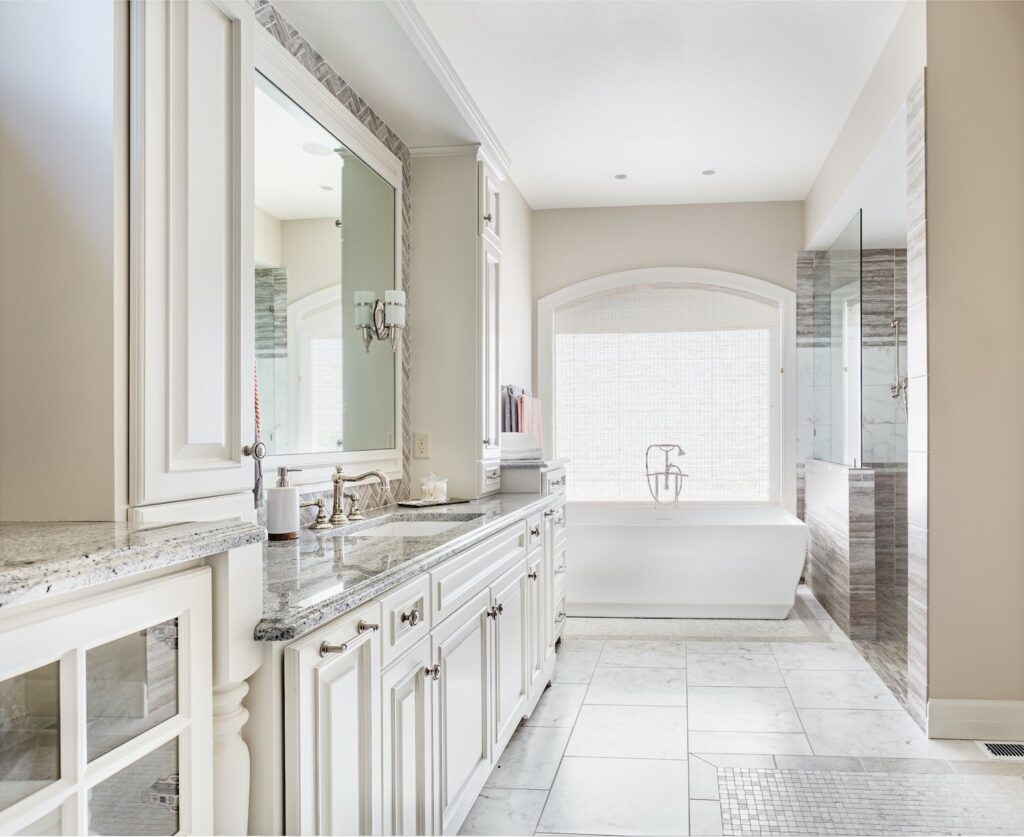
Clean Your Drains to Prevent Clogs
Your plumbing system allows water to enter and leave your residence or commercial establishment without issue. But if this system does not flow easily, you can see water pool in your sink or shower with nowhere to go.
Standing water can be messy as well as hazardous. So you want to make sure your drains function properly to dispose of water without a clog. In order to prevent drain clogs, you should clean your drains regularly in your kitchen, bathroom, and any other drain in your building.
You can mix two parts baking soda and one part salt into a container. Then carefully add four parts of vinegar to the mixture, which will make it fizz. Pour the mix down the drain and let it sit for 15 minutes. Then flush it thoroughly with hot water.
Complete this cleaning regimen on your drains every week or two to keep them clean and lower the risk of forming clogs. This will also get rid of foul odors and prevent fruit flies. You can also ensure your drains stay clean by using a sink strainer and disposing of food waste in the trash or compost.
Schedule a Plumbing Inspection
Winter can be the perfect time to schedule an inspection of your plumbing with your local plumber. You should plan for a professional evaluation of your plumbing every two years on average to ensure the pipes are in optimal working condition.
In winter, pipes might burst in freezing weather conditions. And a plumber can identify if the pipes are at risk of this plumbing emergency.
The plumber will use video technology to view the interior of your pipes. They can find potential blockages that you might not know about in this way, including tree roots in your yard that can block sewage. Messes like sludge can form blockages as well, and this inspection can find them before they cause problems.
They can also look for signs of damage within the pipes’ structure, such as leaks, bulging, rusting, or deterioration. If left alone, leaks will worsen and cost you a significant amount of property damage. This will also be reflected in your utility bill. If the pipe bursts or breaks, it can cause even more damage.
So preventative care will help you avoid this expensive emergency. When you keep your plumbing clean, including the exterior that you can see, you can lower the chance of external elements harming your plumbing. And it can better resist the danger presented by harsh winter temperatures.
Consider a Winter Pipe Inspection
Tuesday, November 14th, 2023
With cold weather on the horizon, you know it is time to prepare your plumbing for the winter season. Unoccupied properties will require special winterization services to protect pipes from freezing when not in use. And both residential and commercial buildings will need to make efforts to avoid this concern as well.
As you practice winter plumbing maintenance, you should also consider scheduling a plumbing inspection with your local plumber. This preventative evaluation will ensure your plumbing system can endure harsh temperatures and weather conditions this weather.
Your pipes can show signs of damage that a professional eye will notice during an inspection. Learn more details about the importance of an annual plumbing inspection when you read on.
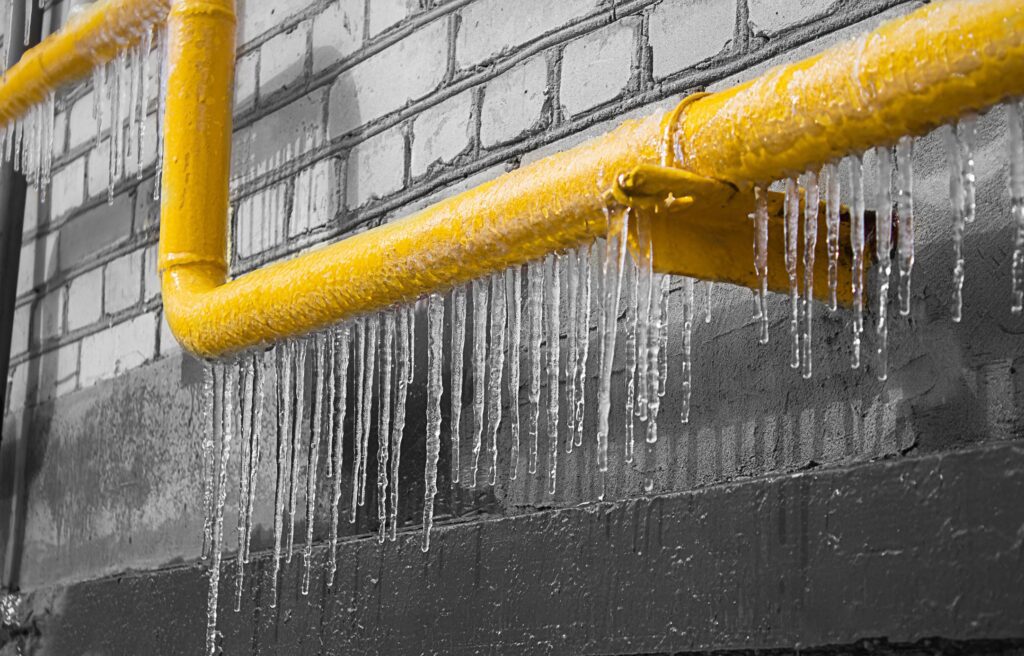
Why Do I Need a Pipe Inspection?
Pipes exist throughout a building to transport water to and away from your property. Even the most reliable plumbing systems might develop issues over time. And these concerns can often present with early indicators before a plumbing emergency develops.
A casual observer might not see these signs of plumbing concerns on their own. You should contact a plumber to complete this job because they possess the expertise and equipment to do a thorough inspection.
They use video technology to obtain a clear image of the interior of your pipes. This way, a plumber can easily identify a blockage or leak within the pipes and make repairs before the issues worsen. A swifter and more precise diagnosis of a plumbing problem can make the repair work simpler as well.
Many issues within a plumbing system might develop outside of your building. Tree roots could cause significant pipe damage that you will not know about until it progresses to an emergency.
Regular inspections of your plumbing can therefore save you property damage, time, and money in the long run. Learn more benefits of this type of routine maintenance by giving your plumber a call.
When Should I Schedule a Pipe Inspection?
The average household should schedule a plumbing inspection at least once a year. Commercial or industrial properties like restaurants that might use water on a more frequent basis may need two or more inspections per year.
You might want to call your plumber about a pipe inspection if you notice signs that there may be a potential issue with your plumbing. Unexplained noises from pipes or odors from drains, water discoloration, leaks, or clogs may seem minor but could point to a larger issue in your plumbing system. So do not hesitate to contact your local plumber.
If you have an older home, you might have an older plumbing system as well. Aging pipes might be more susceptible to damage requiring plumbing repairs. So you may need a plumber to evaluate their condition more frequently.
The wintertime could be ideal to schedule your routine pipe inspection because it ensures your plumbing is in good shape to withstand freezing temperatures. This could reduce your risk of a plumbing emergency in the coming year.
Water Quality FAQs
Thursday, October 19th, 2023
We rely heavily on water accessibility both in our homes and places of business. Drinking, cleaning, and sewage are all crucial to our way of life, so we want to make sure the water involved in these processes is of the best quality possible.
Water provided by public utilities undergoes regular testing to ensure its safety and quality. But if you have well water, you will need to organize annual testing yourself. In either case, you should pay attention to the water you consume.
If you notice irregularities in your tap water, you may want to reach out to a plumber to ascertain if you have a plumbing concern contributing to this issue. But some changes in your water do not always indicate a serious issue. Read on to see responses from your plumber to frequently asked questions regarding the water quality in your home or commercial establishment.
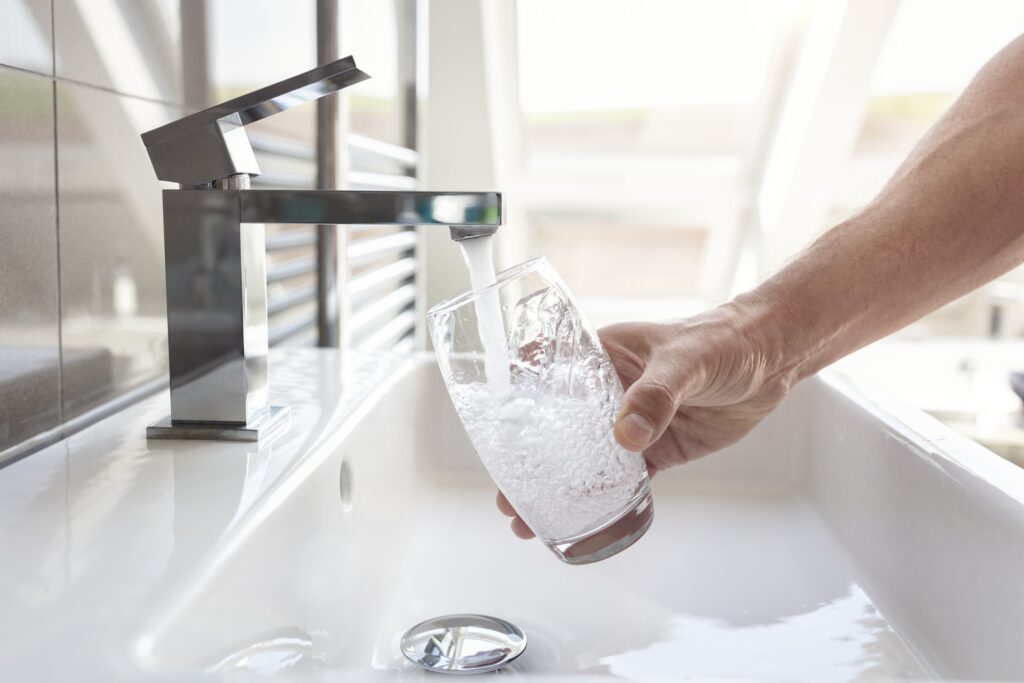
Why Does My Tap Water Have an Odor?
If you notice a smell around your faucet, you might worry that this indicates a problem with the quality of your water. First, you should dispense tap water into a cup and let it sit for a moment. Then smell the water. If the odor persists, then you may need to contact a plumber about the problem.
However, in many cases, you will not notice a smell from this water. This is because most odors related to your faucet come from the drain in the sink. The build-up in the kitchen or bathroom drains will start to smell after a while.
Check your sink drains for signs of a clog. You might also notice that water in a sink is slow to drain in the event of a clog. Call your plumber if you think you have a stubborn clog deep within your plumbing.
Why Does My Water Seem Discolored?
You expect your tap water to come out clear, so if you see a brownish hue to your water, you may worry you have a problem with your water quality. Oftentimes, this discoloration points to the presence of iron in the water. This does not make your water undrinkable, but this rusty color could potentially stain clothes and other items.
Excess iron in tap water is not uncommon and happens when construction or plumbing changes release iron scale into the water. If you flush your tap for about 15 minutes, the water should run clear again.
Does your water look cloudy? This appearance can happen in tap water due to oxygen bubbles within your pipes. As with other types of discoloration, if you run the tap for a few minutes, the problem should go away.
If you see white particles or residues on your dishware and appliances after using your tap water, you should not worry. This occurs due to the presence of minerals in your water.
While annoying to clean, minerals in your water are not dangerous. If the hardness of the water bothers you, ask your plumber about filters and chemical additives that can make your water softer.
Troubleshoot Common Shower Problems
Monday, September 25th, 2023
Showering is a crucial part of your hygiene routine. If something in your bathroom shower does not function properly, your entire schedule can feel disrupted. Even minor inconveniences with your shower can be frustrating enough to impact the rest of your day.
Fortunately, you can fix minor problems in your shower on your own without contacting a professional. But it can be useful to know when these concerns may need attention from an expert plumber. Check out four common issues you might notice in your shower along with tips from your plumber that can resolve them.
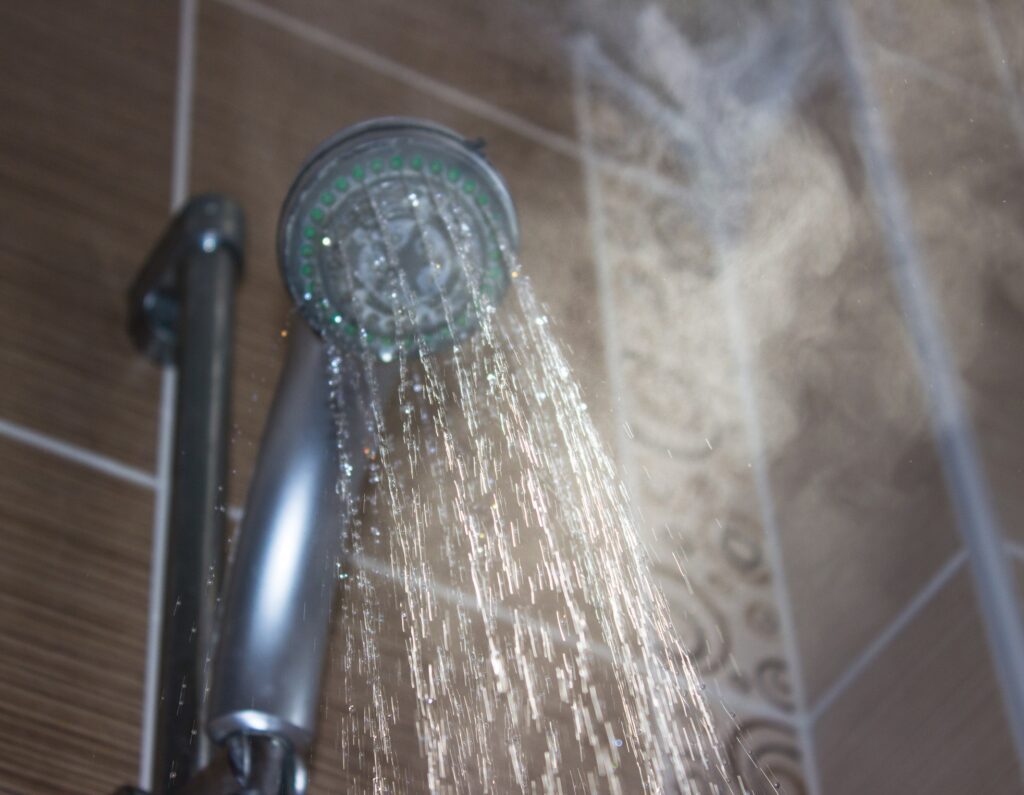
Low Water Pressure
Many people look forward to the soothing sensation of water streaming and hitting your skin, washing you clean. But if the water flow feels weak, you can feel annoyed when that low water pressure does not rinse you with that satisfying feeling. It can also make scrubbing and washing products from your hair more difficult.
In many cases, low pressure in the shower happens due to build-up on the head impeding the water stream. Check your shower head for limescale. To clean it, remove it and soak it in distilled vinegar for 30 minutes. If this does not resolve the issue, you may need to call a plumber to look for blockages deeper in your plumbing system.
Clogged Shower Drain
If you see water pooling at your feet while you shower, then water is not properly able to escape down the drain as it needs to. This may leave your feet soaking in dirty water, which disrupts the clean feeling you crave after a shower.
Soap residue and hair can easily collect in your drain and form a blockage that impedes water disposal. You may need to fish out clogs yourself. But a deeper clog may need an expert to properly dispose of the drain blockage without harming your plumbing.
Leaking Shower Head
When you shut off the faucet to your shower, do you notice that water continues to drip out of the head? This annoying dripping sound might drive you up the wall. But a constant leak of water from your shower will also hike up your utility bill.
You might need to replace certain seals or gaskets within the shower head or faucet to fix the leak. If you have not done a task like this before, you might want to trust this job with a plumbing professional.
Inconsistent Water Temperature
When you achieve the perfect, comfortable temperature setting on your shower, it can be extremely jarring if it suddenly sends a burst of hot or cold water. These disruptions to your shower can often occur if someone elsewhere in your home uses water, such as flushing a toilet.
The problem might lie with the water heater or a valve within the shower. In this case, you would need to ask a plumber for assistance. But you might also benefit from installing a high-efficiency toilet. This would stop a toilet flush from affecting other plumbing in your home.
Avoid Plumbing Emergencies While Out of Town
Tuesday, August 15th, 2023
While on vacation, you want to relax and not worry about what is going on at your house without you there. However, it is a fear in many people’s minds that they will return home after an extended trip to find a major plumbing problem wrecked their house.
You can take measures to avoid this plumbing emergency by preparing your plumbing system for your absence. These steps can significantly reduce your chances of serious flooding and water damage when you are not home. Check out tips from your plumbing expert that can help you prevent a plumbing disaster while you are out of town.
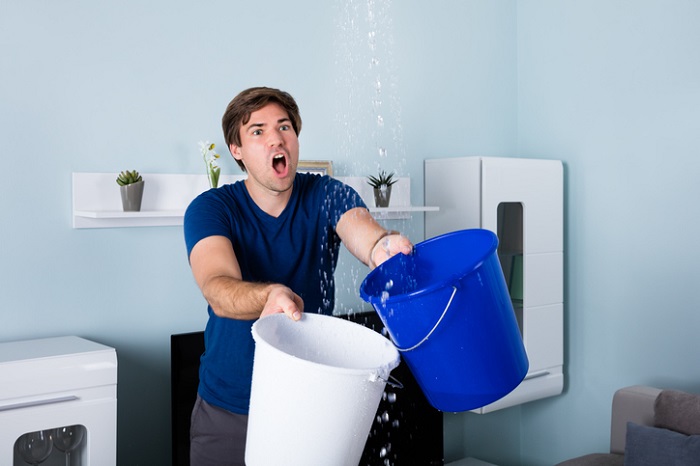
Shut Off Your Main Water Supply
If you intend to travel for several weeks, you may want to shut off your main water valve. This refers to the primary pipe in your plumbing system that supplies water to your house. If you notice a plumbing emergency while at home, especially one that involves water seeping or flooding incessantly, you would turn off this valve. Then, water can no longer flow and cause these problems.
But if the issues occur while you are not there, then you cannot shut off this valve to stop the excess water. So if the problem develops, water can leak and wreak havoc on your property. That could leave you with extensive damage and expensive repairs.
Turning off this valve when you leave your house for a long period can give you some peace of mind that this emergency will not go unstopped during your trip. Make sure you know where this valve is in your home in the event of an emergency.
Examine Your Plumbing Before You Go
Before leaving for a long trip, you might want to take a walk around your home and examine your plumbing. Look for cracks in your walls, damp spots, or discoloration on the floors or ceiling. These signs could all point to a leak that could easily worsen while you are out of town.
You should also check for any musty odors that could signify standing water that might otherwise be hidden. Take a look at your drains as well. Clogs left in your plumbing over time can start to smell bad. This could make for an unpleasant return home at the end of your trip.
Ask a Friend to Check on Your Home
When you cannot get to your house but need some reassurance that your house and plumbing are in good standing, you might want to ask a friend if they would not mind checking on your home for you. Find someone you trust and leave them a key or another way to enter your home. They can ensure that no plumbing emergency occurred.
This way, if a problem does develop, someone can identify it. Then they can notify a plumber on your behalf for urgent repairs. Develop a plan to protect your property from potential plumber dangers.
Is Hair Bad for Your Drain?
Wednesday, July 19th, 2023
Everyone sheds their hair naturally, and it seems like you notice many stray hairs in the shower in particular. This is because you are rinsing and manipulating already shed hair that will now wash away from your head and into your drain.
But hair is a primary cause behind many clogs in shower drains. While you might know that long head hair will create this problem, the short hair washed away as you shave your legs, face, or armpits will also pose a threat to your drain.
Clearing away clogs can be a hassle. Water alone will not wash away clumps of hair clogging your plumbing. And this type of clog will not respond to chemical drain cleaners either.
You will need to contact a plumber to remove these clogs in many cases. So to avoid this troublesome task, you will want to be careful about the hair that you send down your shower drain. Read on to learn more about how hair will affect the function of your bathroom drains and how you can avoid a clog.

How Does Hair Impact a Drain?
When hair clogs a drain, you will notice that water will drain slowly or not at all in the case of a full blockage. Then you can start to notice a foul odor from the drain where the clog accumulates smelly residues and particles.
Hair has several features that make it particularly harmful to drains. Hair easily wraps and grips, as you may notice on your hairbrush or when you use styling tools. This makes it better able to cling to plumbing and then collect with other strands of hair to form a clog that blocks your drains and pipes.
Hair also contains natural oils that will further encourage clumping and therefore clogging. In conjunction with shampoos, soaps, and conditioners, a clog can be even more likely.
Hair expands when wet as well. That means that water going down the drain will make a clog even more problematic. This is why running water into the drain will not get rid of this clog.
Strong hair follicles also do not break down when exposed to chemical drain cleaners either. So these clogs will prove even more stubborn and difficult to remove. Plumbing experts promote preventative measures to avoid forming clogs in the first place for this reason.
How Can I Prevent Drain Clogs?
You should practice routine maintenance on shower drains to avoid clogging a drain with your hair. This will involve flushing the drain with hot water after each use. You may want to use a cleaning solution every so often to ensure the drain remains clean.
You may benefit from using a drain screen to catch stray hairs that would otherwise go down the drain. Then you can clean the screen rather than worry about hair clogging within your plumbing. Even if you try to remove shed hair with your hands and dispose of it outside of the shower, you will not catch every hair this way.






